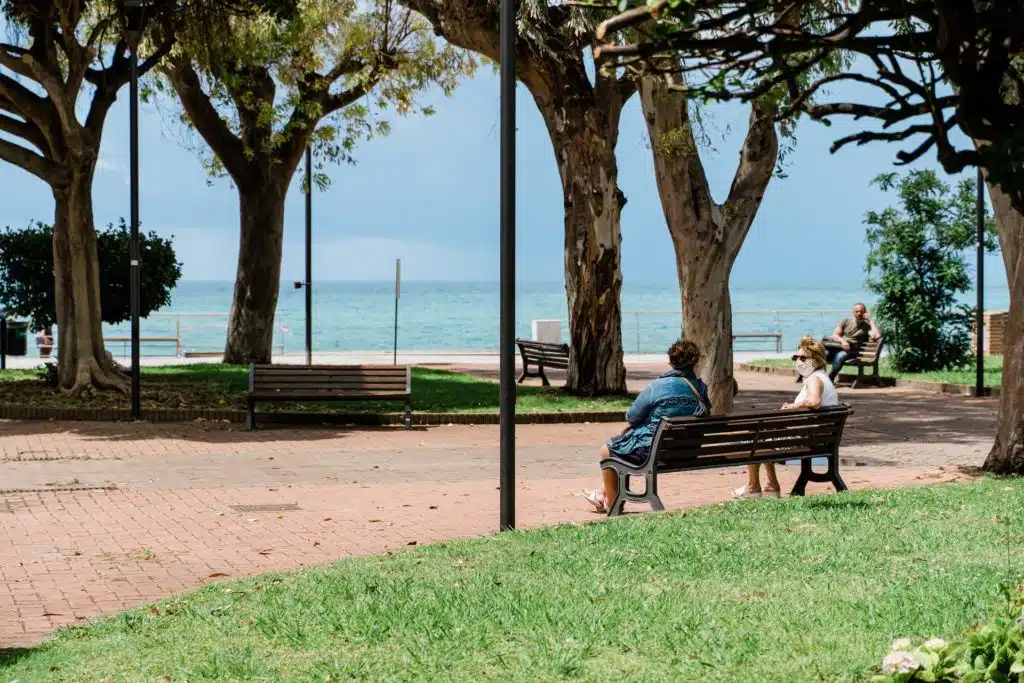Guidance on taking therapy outdoors in natural settings has been welcomed by psychologists and their clients.

The British Psychological Society produced the guidance in July last year in response to the restrictions introduced due to the COVID-19 pandemic. While much of the response to the restrictions centred around technology by replacing face-to-face therapy sessions with remote therapy using video calls, the guidance offered an alternative for psychologists whose clients expressed difficulties with these approaches, such as access to equipment, digital literacy, and restricted non-verbal communication.
“Physical distancing measures brought in to control the spread of Covid-19 led therapists to explore alternative ways of working with clients,” said Dr Sam Cooley, one of the lead authors of the guidance.
“This has often been using digital technology, but the guidance we published encouraged therapists to use the additional flexibility afforded to them by holding sessions outdoors and in natural environments where appropriate.”
“The response to the BPS guidance document has been fantastic. We've had many people get in touch from various services to share positive experiences of outdoor practice.”
The response to the guidance was shared during mental health awareness week, hosted by The Mental health Foundation, which introduced the theme of nature.
Explaining why the theme of nature had been selected, Mark Rowland, Chief Executive of the MHF, said: “Nature is so central to our psychological and emotional health, that it’s almost impossible to realise good mental health for all without a greater connection to the natural world.”
During Mental Health Awareness Week, the MHF pledged to pull together the evidence that demonstrates the powerful benefits of nature for our mental health.
The BPS guidance suggests that taking therapy sessions outdoors can promote access for service users who find an indoor therapy environment uncomfortable, promote greater freedom for people to express themselves and provide benefits to physical, as well as psychological, health.
Scenarios covered in the guidance include the therapist and client sitting together in a park or walking on a footpath while talking, as well as more active sessions where someone has a positive existing relationship with outdoor pursuits.
“This approach can offer many benefits to both therapist and service user, including an increased sense of belonging and wellbeing, a greater shared ownership of the therapy space and a better experience for clients who may find the conventional therapy space less comfortable,” concluded Dr Sam Cooley.
Mental Health Awareness Week was 10-16 May

